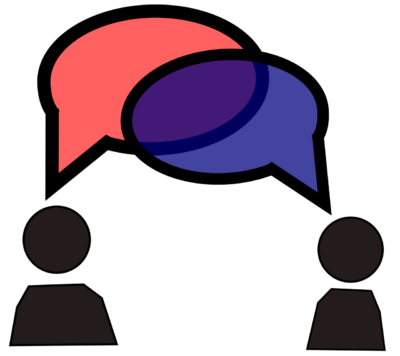As my cursor hovers over the “submit” button at the bottom of my graduate school applications, I stop to consider the environment I am going to inhabit at the cost of countless dollars and hours. I am understandably wary. In the time it took to raise me to the age of 18 with aspirations of higher education firmly socialized in my identity, the status of American universities has seemed to plummet to the brink of collapse. The number of completed bachelor’s degrees in humanities has declined for ten consecutive years – finally falling below 12 percent of all bachelor’s degrees in 2015. Still, humanities departments nationwide perpetuate ideas that contribute to divisions on campus and in our culture as a whole, causing college education to appear as simply extended periods of brash adolescence for those wealthy enough to afford it – or those foolish enough to make the attempt.
Universities should foster the expression of uncommon or radical ideas, but unfortunately many students (often the loudest) exclude all ideas deemed inappropriate or offensive as a matter of ideology. A recent study by John Villasenor of the Brookings Institute and UCLA showed many university students held surprisingly mistaken views on the first amendment and what it implies. Shockingly, a full “fifth of undergrads now say it’s acceptable to use physical force to silence a speaker who makes ‘offensive or hurtful statements.’” How did our bastions of free inquiry become infected by such toxic, exclusive ideologies?
In a recent conversation between clinical psychologist Dr. Jordan Peterson and social psychologist Dr. Jonathan Haidt on Peterson’s eponymous podcast, the two addressed this very question. Haidt has done extensive research on the emotion of disgust, particularly how it relates to value systems, as opposed to food or illness. He and Peterson see political belief as an expression of how open or conscientious a person is when confronted by novel ideas. It is easy to imagine which side of the political spectrum corresponds with each personality trait. Liberals pride themselves on open-mindedness while conservatives focus on conscientiousness, setting and preserving limits. These dispositional variations between liberals and conservatives are linked to “differences in epistemic and existential needs to manage uncertainty and threat,” according to a paper on personality traits and political views by Professor Dana R. Carney. In other words, political belief corresponds to the rigidity of one’s ideological “immune system.” An individual with a more open worldview is more likely to lean liberal, while someone with harder boundaries to their worldview more likely identifies as conservative. When these personality traits are considered through the metaphor of the immune system, the emotion of disgust makes sense as a reaction to ideas that we find repugnant.
A metaphor provided by Peterson explains how these two traits can work in a functional dialogue. He says it is as if society is on the back of a snake, slithering back and forth. In the struggle to stay on the back of the snake, it is necessary to have people both pulling and pushing. In any society, at every level, it is important to be both open enough to adapt to a changing environment as well as ordered enough to protect against external threats. Both are also necessary for universities. It is for this reason why I would suggest to my more radical peers the same thing I suggested a year ago for a New Voices piece on Trump’s election – have faith in your institutions and our bipartisan system.
As the far left attempts to slash and burn everything inconsistent with its views out of society, it does itself a serious disservice. Criticism is the whole point of a university, but the act of criticism is not to completely obliterate what is being criticized; it is to cull the wheat from the chaff. We don’t want to fall into an ideological position that may line up with our personal predispositions but cuts off the branch we are sitting on. As George Orwell pointed out exactly 80 years ago, sometimes being radically divisive does more to harm the goals of liberty and justice than to help them. It is easy to profess an ideology that we think puts us on the moral high ground. We might even think it necessary in the wake of such an unsettling event as the election of Donald Trump. But we must exercise caution and not let the overreactions of our ideological immune systems widen the divisions in our culture.
Josh Daniels studied religion at Western Washington University.
![conversation-1262311_1280 | [Public Domain], via Pixabay](https://newvoices.org/wp-content/uploads/2017/06/conversation-1262311_1280.png)


